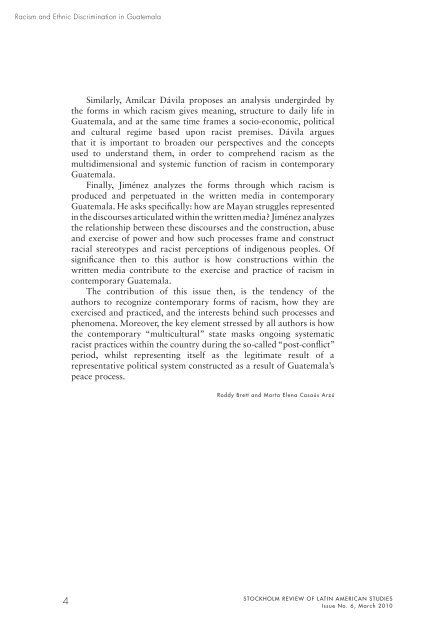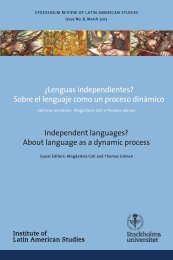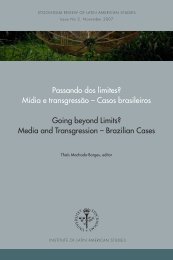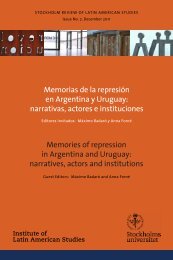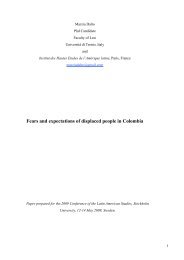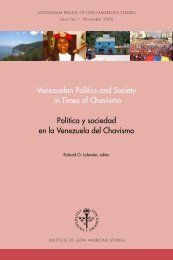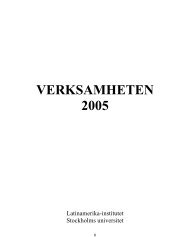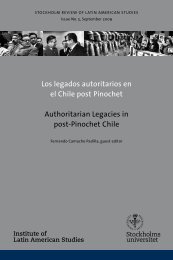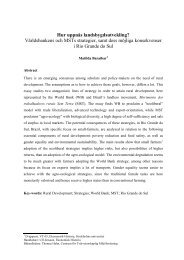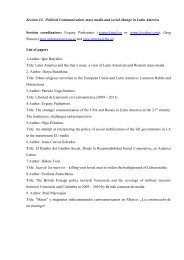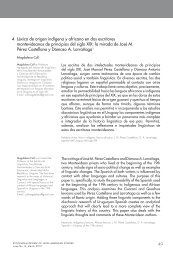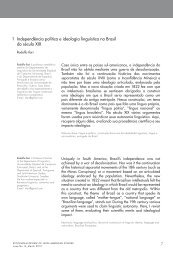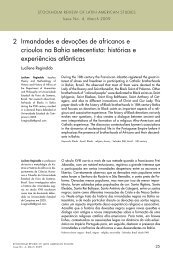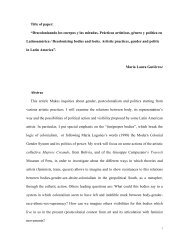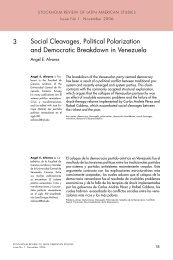Racism and Ethnic Discrimination in Guatemala - Institute of Latin ...
Racism and Ethnic Discrimination in Guatemala - Institute of Latin ...
Racism and Ethnic Discrimination in Guatemala - Institute of Latin ...
- No tags were found...
You also want an ePaper? Increase the reach of your titles
YUMPU automatically turns print PDFs into web optimized ePapers that Google loves.
<strong>Racism</strong> <strong>and</strong> <strong>Ethnic</strong> <strong>Discrim<strong>in</strong>ation</strong> <strong>in</strong> <strong>Guatemala</strong>Similarly, Amilcar Dávila proposes an analysis undergirded bythe forms <strong>in</strong> which racism gives mean<strong>in</strong>g, structure to daily life <strong>in</strong><strong>Guatemala</strong>, <strong>and</strong> at the same time frames a socio-economic, political<strong>and</strong> cultural regime based upon racist premises. Dávila arguesthat it is important to broaden our perspectives <strong>and</strong> the conceptsused to underst<strong>and</strong> them, <strong>in</strong> order to comprehend racism as themultidimensional <strong>and</strong> systemic function <strong>of</strong> racism <strong>in</strong> contemporary<strong>Guatemala</strong>.F<strong>in</strong>ally, Jiménez analyzes the forms through which racism isproduced <strong>and</strong> perpetuated <strong>in</strong> the written media <strong>in</strong> contemporary<strong>Guatemala</strong>. He asks specifically: how are Mayan struggles represented<strong>in</strong> the discourses articulated with<strong>in</strong> the written media? Jiménez analyzesthe relationship between these discourses <strong>and</strong> the construction, abuse<strong>and</strong> exercise <strong>of</strong> power <strong>and</strong> how such processes frame <strong>and</strong> constructracial stereotypes <strong>and</strong> racist perceptions <strong>of</strong> <strong>in</strong>digenous peoples. Ofsignificance then to this author is how constructions with<strong>in</strong> thewritten media contribute to the exercise <strong>and</strong> practice <strong>of</strong> racism <strong>in</strong>contemporary <strong>Guatemala</strong>.The contribution <strong>of</strong> this issue then, is the tendency <strong>of</strong> theauthors to recognize contemporary forms <strong>of</strong> racism, how they areexercised <strong>and</strong> practiced, <strong>and</strong> the <strong>in</strong>terests beh<strong>in</strong>d such processes <strong>and</strong>phenomena. Moreover, the key element stressed by all authors is howthe contemporary “multicultural” state masks ongo<strong>in</strong>g systematicracist practices with<strong>in</strong> the country dur<strong>in</strong>g the so-called “ post-conflict”period, whilst represent<strong>in</strong>g itself as the legitimate result <strong>of</strong> arepresentative political system constructed as a result <strong>of</strong> <strong>Guatemala</strong>’speace process.Roddy Brett <strong>and</strong> Mar ta Elena Casaús Arzú4STOCKHOLM REVIEW OF LATIN AMERICAN STUDIESIssue No. 6, March 2010


